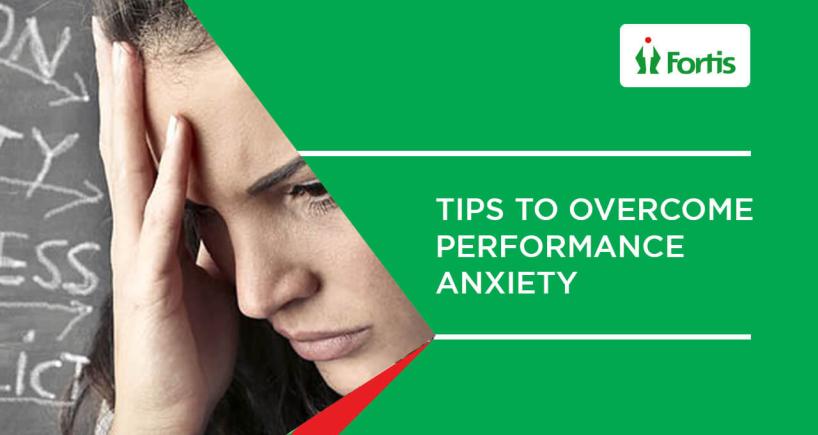
How to Overcome the Stage Fright
Stage Fright and Performance Anxiety
Have you ever been about to conduct a meeting, write an examination, participate in a sports competition, or parallel park when your friends are watching when all of a sudden, your heart starts to race, your hands and knees start to tremble, and you feel as though the only way out is to escape? The chances are that you are experiencing performance anxiety.
One of the most common types of anxiety is performance anxiety, which is characterized by feelings of stress, apprehension, or fear when performing or speaking in public. It is also applicable to taking a test and other important life events. The anxiety before an important work can include a rapid heartbeat, parched mouth, jittery lips, hands, and voice, nausea, and even changes in vision. According to study published in the journal Cognition and Emotion, anxiety when it is felt right before or during a task "drains working memory capacity, reduces self-confidence, and affects performance."
How to Overcome Stage Fright and Performance Anxiety
Fortunately, you can learn how to get over this performance anxiety. Although it requires some effort, overcoming performance anxiety is worthwhile. Here are a few strategies that, when used, will greatly help you regain control over your performance, whether it be a workplace presentation or singing in front of an audience.
- Accept Pre-Performance Jitters
- Be Prepared
- Build Self Confidence
- Practice Visualization
- Let Go of Expectations
1. Accept Pre-Performance Jitters
Allowing and processing your anxiety is the first thing to learn. Simply accept the presence of your anxious feelings rather than trying to fight them. The first step toward bringing about change is acceptance. You will just be magnifying the feeling of anxiety if you continually try to convince yourself that the nerves aren't there or if you put too much effort into getting rid of them.
What if experiencing anxiety before a presentation was perfectly alright?
Did you know that you can have sensations of anxiety while still giving a fantastic presentation, writing a great brief, launching a podcast, or doing anything else you want? You can allow anxiety, a sensation in your body, to be present without it affecting your life.
Acknowledge the feelings of anxiety before a talk and accept it is as a part of the process of giving a talk. It doesn’t mean that you are unprepared or unqualified.
You can explore the thoughts that cause your anxiety once you learn to accept it. By acknowledging the presence of the nerves, you are effectively telling them, "I know you're here, but I won't let you stop me from accomplishing what I want to do."
2. Be Prepared
Preparation is the second technique for overcoming performance anxiety. Being unprepared is the worst thing you can do if you tend to feel nervous and tense before an event. It can be really difficult to be confident when you're unfamiliar with a task.
Although preparation alone might not be able to entirely eliminate your performance anxiety, it will do miracles for your confidence.
Now, you might wonder, "What if I've done all the necessary preparation, but I still experience performance anxiety?" In addition to acceptance and preparation, you can also use these techniques.
3. Build Self Confidence
Stand in front of a mirror if you're lacking confidence. Check your posture and check the tightness of your jaw muscles. In which part of your body do you feel the tension? Hold that spot firmly in your palm, be kind to yourself, and remind yourself that you are secure and capable of performing well. Stand tall, ground your feet firmly beneath you, release any tension in your body, look deeply into your eyes, and tell yourself, "I've got this." Be your own best friend and speak positive affirmations to yourself as often as necessary.
4. Practice Visualization
Try to picture yourself doing the thing you're terrified of. What impression do you want to make? What tone will you use while speaking? What mood and essence are you trying to project? Do you want to be friendly, calm, and professional in your tone? Picturing the task at hand can help you feel less anxious.
5. Let Go of Expectations
Our minds are frequently flooded with expectations before any anxiety-inducing event. But trying to control the outcome is futile as there are so many other elements that could influence the result. Expectations are the notions we have about how something ought to be or how a situation ought to unfold. Although this may seem like a constructive way of thinking, it actually prevents you from performing at your best and increases anxiety.
Your performance will become a lot more natural and effortless though if you can learn to let go and focus more on the process. Keep in mind that letting go of expectations does not imply having no goals. However, once you've set a target, you must now focus on the process to get there and not on the outcome.
Conclusion
Being prepared, accepting pre-performance nerves, building self-confidence, visualizing, and letting go of expectations are all effective strategies to overcome performance anxiety. Each of these techniques will be of great help to you. But when combined, they work exceptionally.
Categories
Clear allMeet the doctor

- Mental Health and Behavioural Sciences | Clinical Psychology
-
6 Years
-
1500



















